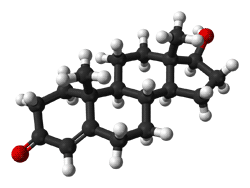About Low Testosterone
Testosterone is the most important sex hormone in the male body. Testosterone is responsible for development of male characteristics such as body and facial hair, muscle growth and strength and a deep voice.  Normal levels of testosterone also influence the production of sperm, promote sexual function and promote sex drive.
Normal levels of testosterone also influence the production of sperm, promote sexual function and promote sex drive.
We now know that some men’s bodies do not make enough testosterone, resulting in a condition called hypogonadism or low testosterone (low T). These men may experience uncomfortable and sometimes distressing symptoms. The U.S. Food and Drug Administration (FDA) estimates that 4 to 5 million American men may suffer from low T, but only 5 percent are currently treated.
As men get older, the ability to produce testosterone declines. Studies show that men lose testosterone at a rate of 1 to 2 percent a year after age 30. If testosterone levels fall below the normal range some typical symptoms may include:
- Low sex drive
- Erectile dysfunction (ED)
- Increased irritability or depression
- Fatigue
- Reduced muscle mass and strength
- Inability to concentrate
- Decreased bone density; osteoporosis
If you experience symptoms associated with low T, you may want to ask your doctor about getting your testosterone levels checked. A primary care physician can check your testosterone levels with a simple blood test to determine if you have low T and whether testosterone therapy is right for you. You might also ask your primary care physician about a referral to an endocrinologist or urologist who specializes in treating conditions such as low T.
If you do experience symptoms of low T and are diagnosed by a physician, the good news is that the condition very often is treatable. There are several FDA-approved testosterone replacement therapies, including:
- Gels
- Patches
- Injections
- Buccal Tablet
Testosterone therapy is not for everyone. Please talk to your doctor about which therapeutic option may be best for you.
Testosterone therapy should not be used in men with carcinoma of the breast or known or suspected carcinoma of the prostate.
Geriatric patients treated with androgens may be at an increased risk for the development of prostatic hyperplasia and prostatic carcinoma.
MHN provides this information as a courtesy only. MHN is not a health care provider and does not endorse any particular diagnostic or treatment protocol.
Additional Resources
The following professional and patient care organizations are available as resources for further information about low testosterone and testosterone replacement therapy:
American Academy of Family Physicians (AAFP)
11400 Tomahawk Creek Parkway
Leawood, KS 66211
913-906-6000
www.aafp.org
American Association of Clinical Endocrinologists (AACE)
1000 Riverside Avenue, Suite 205
Jacksonville, FL 32204
904-353-7878
www.aace.com
American Society for Reproductive Medicine
1209 Montgomery Highway
Birmingham, AL 35216
205-978-5000
www.asrm.org
American Urologic Association (AUA)
1000 Corporate Boulevard
Linthicum, MD 21090
410-689-3700
www.auanet.org
The Endocrine Society
8401 Connecticut Avenue, Suite 900
Chevy Chase, MD 20815
301-941-0200
www.endo-society.org
The Hormone Foundation
8401 Connecticut Avenue, Suite 900
Chevy Chase, MD 20815
800-HORMONE
www.hormone.org
Sexual Medicine Society of North America, Inc.
1111 North Plaza Drive, Suite 550
Schaumburg, IL 60173
847-517-7225
www.smsna.org
